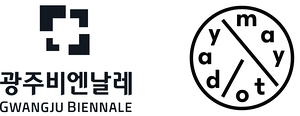May 18 Democratization Movement 40th Anniversary Exhibition
October 14–November 29, 2020
The civil spirit of the Gwangju Democratization Movement of 1980, widely known as the “May 18 spirit” or “Gwangju spirit,” has been the core theme of Gwangju Biennale since its inauguration in 1995. The participating artists and curators have consistently found inspiration in the city’s history of civil resistance—which anchors Gwangju Biennale’s identity and distinguishes it from other international biennials. Organized by the Gwangju Biennale Foundation to commemorate the Democratization Movement’s fortieth anniversary, MaytoDay draws attention to the lasting effects, everydayness, and micro-histories of the May 18 spirit, and seeks to situate this discourse amid us today.
MaytoDay comprises a series of exhibitions curated and mounted in cities across the world. Springing from projectscurated in Taipei (May 1–July 5) and Seoul (June 3–July 5) as well as Cologne (July 3–September 27) and Buenos Aires (date to be announced), the Gwangju iteration of MaytoDay reorganizes these four exhibitions, and places each countries’ historical and political experiences in dialogue with Gwangju’s. Staged across three historic venues, the Asia Culture Center, the former Armed Forces’ Gwangju Hospital and the Lotus Gallery at Mugak Temple, the exhibitions collectively look back to look forward.
With “co-sensus” and “stream” as keywords, MaytoDay: DemoStream in Democracy curated by Chien-hung Huang examines new methods of clustering by connecting the history of civil resistance of Korea, Taiwan and Hong Kong. First presented at Seoul Art Sonje Center, Spring of Democracy conceived by Ute Meta Bauer and Kathleen Ditzig revisits how participating artists at the previous editions of Gwangju Biennale have addressed the movement by juxtaposing artworks with archival materials. A project-cum-school-cum-“a monument in action,” Gwangju Lessons is an exhibition curated by Binna Choi that proposes May 18 as a vast subject to continuously and collectively study, learn, and unlearn from the standpoint of today’s democratic practice, drawing inspiration from the People’s Art School (1983–late 1980s) in Gwangju. Under the curatorship of Javier Villa and Sofía Dourron, Myths of the Near Future presents works by eight Argentine and South Korean artists. Building upon the foundational narratives of resistance and repetitive neoliberal tales, the exhibition envisions new political imaginaries.
In addition to restaging these four exhibitions from four different cities, the Gwangju edition of the MaytoDay presents woodcuts and printed materials from the 1980s and works produced through the GB Commission program. Curated by Jinha Kim, Woodcut Prints in the 1980s: A Testimony of Resistance, A Memory of Movement introduces, for the first time, a rich collection of woodcut prints by over 40 artists and collectives across Korea. It highlights how the medium played an important role in resisting the military dictatorship and promoting the democratization movement under the government’s oppressive control.
Initiated in 2018 by the Gwangju Biennale Foundation, GB Commission invites selected artists to produce new works tracing Gwangju’s history, memories, peoples, and stories. The latest GB Commission productions include Ho Tzu Nyen’s The 49th Hexagram, a two-channel animation work that traces Korea’s history of mobilization toward democracy, and Chiharu Shiota’s Language of God, a site-specific installation inside former Armed Forces’ Gwangju Hospital chapel. They are shown alongside the restaging of installations by Kader Attia, Minouk Lim and Mike Nelson.
The Gwagju iteration of MaytoDay will be available online as a VR exhibition. As a final destination of this multi-sited project, MaytoDay is scheduled to be shown in Venice to coincide with the Venice Biennale of Architecture next year.
MaytoDay project
Commissioner: Sunjung Kim
Curators:
Binna Choi
Chien-hung Huang
Sofiía Dourron & Javier Villa
Ute Meta Bauer & Kathleen Ditzig
Woodcut Prints Exhibition Curator: Jinha Kim
Press contact: maytoday@gwangjubiennale.org








